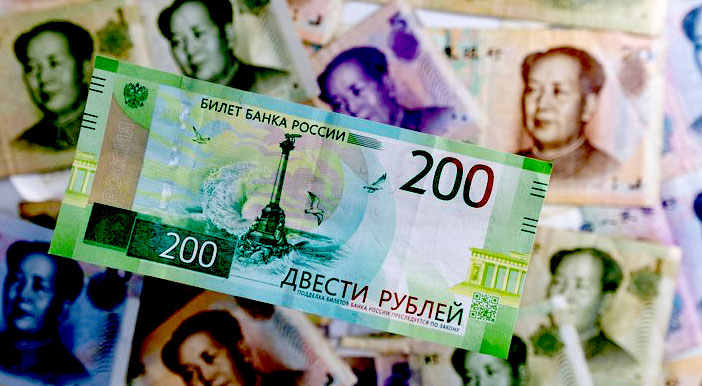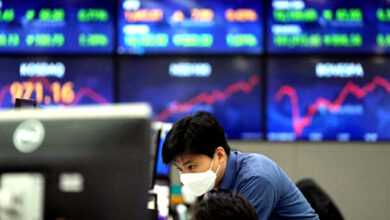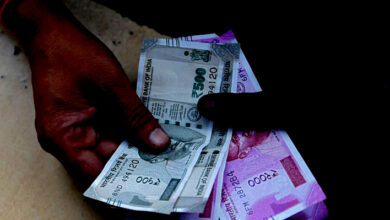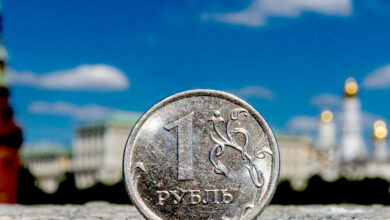After Russia burned them, investment funds are cautious in China.

London (Reuters) – China is again attracting foreign investors because it is the only big economy that looks like it will grow again this year. Still, demand isn’t as high as it could be because people are afraid that Beijing will one day be shut out of global markets like Russia.
The scale and coordination of Western sanctions against Russia after President Vladimir Putin’s invasion of Ukraine on February 24 shocked the financial markets, and managers were left with billions of dollars in assets that were suddenly worthless overnight.
Even though it seems unlikely that China would do something like this, given how big its economy is and how much foreign money is invested there, it is a risk that many don’t want to ignore.
Bill Campbell, a portfolio manager at DoubleLine Capital, which manages $122 billion in assets, said, “The global investment community is on notice that if another geopolitical event were to happen, the precedent is already set for these very strict and harsh sanctions.”
CEO of DoubleLine Jeffrey Gundlach said that China is not a good place to invest because of sudden regulatory crackdowns, forced delistings of shares, and the last-minute cancellation in late 2020 of the multi-billion dollar IPO of billionaire Jack Ma’s Ant Group.
Campbell said there was a “new paradigm” where geopolitical events could have “immediate effects on investments and indexes.” He pointed to tensions around Taiwan and in the South China Sea as possible flashpoints with the West.
China has a big impact on stock and bond indexes, so investors, including his firm, need to have some exposure to the country. DoubleLine has been buying bonds from regional development banks and using other Asian countries as stand-ins for China to avoid tying up too much money onshore.
Tensions between China and the United States have been building for years over issues like international trade and intellectual property rights. Recently, Washington warned Beijing that it would face consequences if it supported Russia’s “special military operation” in Ukraine, which is what the Kremlin calls its war in Ukraine.
The US says that China has mostly followed the rules, but last week, five Chinese companies were put on a blacklist because they allegedly helped Russia’s military industrial base.
A bill introduced in the U.S. Senate also threatens Beijing with sanctions if it acts aggressively toward Taiwan, which China claims as its own territory.
After Russia invaded, Flavio Carpenzano, who is in charge of investments at Capital Group, which manages $2.6 trillion worth of assets, cut the amount of money that was invested in Chinese government bonds.
“It doesn’t mean we don’t think China is a good place to invest or that we think there will be a war with Taiwan tomorrow,” Carpenzano said. “But volatility will stay high, and we don’t think the yield reflects this kind of volatility.”
BlackRock (NYSE:BLK), which is the world’s largest asset manager and has been a China bull for a long time, cut its view on Chinese stocks in May, saying that military conflict with Taiwan will become more likely as the decade goes on.
PERCEIVED RISK
The Institute of International Finance says that investors took out more than $30 billion from China between January and March.
The outflows were caused by COVID lockdowns, stress in the property market, and rising U.S. Treasury yields. However, the IIF also pointed to “the perceived risk of investing in countries with complicated relationships with the West.”
Still, the country’s economic recovery, which is different from the fears of recession in the West, led to a net $11 billion inflow into China-listed stocks last month, according to data from Refinitiv Eikon.
“There aren’t many things you can buy these days that might go up in price,” said Mike Kelly, head of multi-asset at PineBridge Investments. He owns Chinese property sector dollar bonds and is one of the people who are buying Chinese stocks again.
Kelly said that no one could feel completely safe investing in China, but he was sure that “if they do something on Taiwan, it won’t be in the next two years.”
INDEX IS HUGE
Many people say that sanctions are less likely because of how big China’s economy and markets are. They say that sanctions would hurt the West much more than they would hurt Russia. Even more damage would be done to the world’s financial markets.
JPMorgan (NYSE:JPM) thinks that foreigners own about 5% of stocks and a smaller amount of bonds in a market worth $30 trillion as a whole.
Given that China makes up 40% of emerging equity indexes and 10% of JPMorgan’s GBI-EM emerging debt benchmark, the amount of foreign cash invested in index-tracking products could be a sticking point.
Before the invasion of Ukraine, Russia had a 6,1% share of the debt benchmark.
A major bank’s head of emerging markets strategy told Reuters that the conflict between Russia and Ukraine has caused a lot of clients to ask a lot of questions about Chinese exposure, especially to stocks.
The strategist, who didn’t want to be named, said that clients were deciding how much money to put into “a market you might not be able to get out of quickly.”
WisdomTree is an asset manager that runs a fund that doesn’t include state-run Chinese companies. “Based on our own review of the market opportunity,” said Jeremy Schwartz, the firm’s chief investment officer, which manages $79 billion in assets.
Kelly of PineBridge said that people who invest in China should be ready for sudden changes in the end.
“There is a chance that if you invest, they’ll pull a Putin on you and you’ll be stuck,” he said.





